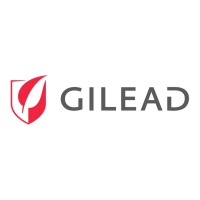Gilead Sciences' (GILD) Kite and CIBMTR Present Positive Findings From Real-World Use of Yescarta in Relapsed or Refractory Large B-Cell Lymphoma

Kite, a Gilead Company (Nasdaq: GILD), and the CIBMTR® (Center for International Blood and Marrow Transplant Research®), the research collaboration between the National Marrow Donor Program® (NMDP)/Be The Match® and the Medical College of Wisconsin (MCW), today announced findings from an ongoing post-marketing study evaluating the safety and efficacy of Yescarta® (axicabtagene ciloleucel) in adult patients with relapsed or refractory large B-cell lymphoma. In this analysis, efficacy and safety of Yescarta were comparable to that observed in the ZUMA-1 trial, despite a larger proportion of older, more difficult-to-treat patients in the real-world setting. The findings were presented today at the 61st American Society of Hematology (ASH) Annual Meeting & Exposition, held in Orlando from December 7–10, 2019.
“The similar efficacy and safety results seen across this post-approval analysis and the ZUMA-1 registrational trial are extremely encouraging for appropriate patients with relapsed or refractory large B-cell lymphoma who may benefit from Yescarta,” said Marcelo Pasquini, MD, MS, co-lead investigator and Senior Scientific Director of the CIBMTR; Cellular Therapy Registry Director; and Associate Professor of Medicine, Division of Hematology / Oncology at the Medical College of Wisconsin. “The comparable early outcomes, including side effects, support the potential of Yescarta in older, higher risk and more difficult-to-treat patients that physicians often see in the clinic.”
In October 2017, Yescarta became the first CAR T cell therapy to be approved by the U.S. Food and Drug Administration (FDA) for the treatment of adult patients with relapsed or refractory large B-cell lymphoma after two or more lines of systemic therapy, including diffuse large B-cell lymphoma (DLBCL) not otherwise specified, primary mediastinal large B-cell lymphoma (PMBCL), high grade B-cell lymphoma and DLBCL arising from follicular lymphoma. Yescarta is not indicated for the treatment of patients with primary central nervous system lymphoma. The U.S. Prescribing Information for Yescarta contains a Boxed Warning regarding the risk of cytokine release syndrome (CRS) and neurological toxicities; see below for Important Safety Information.
The post-approval study population (n=533) included a larger proportion of older patients (≥65 years; 37 percent versus 25 percent) and more patients with double and triple hit lymphoma (36 percent versus 11 percent) compared to ZUMA-1.
At follow-up of at least six months after a single infusion of Yescarta, the best objective response via investigator assessment among the 326 patients evaluable for efficacy showed an objective response rate (ORR) of 84 percent, with 66 percent of patients having achieved a complete response (CR). ORR was similar among older and younger patients (92 percent in patients ≥65 years versus 80 percent in patients <65 years). Patients ≥65 years (n=108) achieved a CR rate of 72 percent versus 62 percent in patients <65 years (n=218).
Among all patients evaluable for safety (n=533), those 65 years or older had comparable rates of CRS (Any Grade: 84 percent vs. 80 percent; Grade ≥3: 10 percent vs. 8 percent) and neurologic toxicity (Any grade: 64 percent vs. 55 percent; Grade ≥3: 22 percent vs. 19 percent) as those under 65 years. Four patients died due to CRS, four patients died from neurologic toxicity and one patient died from both CRS and neurologic toxicity. This Grade 5 AE rate of approximately 1 percent for CRS and neurologic toxicity each is comparable to ZUMA-1.
“With more than 85 centers authorized to treat patients with Yescarta, these post-approval results reinforce its potentially transformative role in third line or later relapsed or refractory large B-cell lymphoma,” said Christi Shaw, Chief Executive Officer of Kite. “The demonstrated efficacy and safety of Yescarta in the real-world setting, coupled with our industry-leading manufacturing that has delivered for thousands of patients so far, means physicians have a real opportunity to bring the potential benefits of CAR T to their patients in need.”
